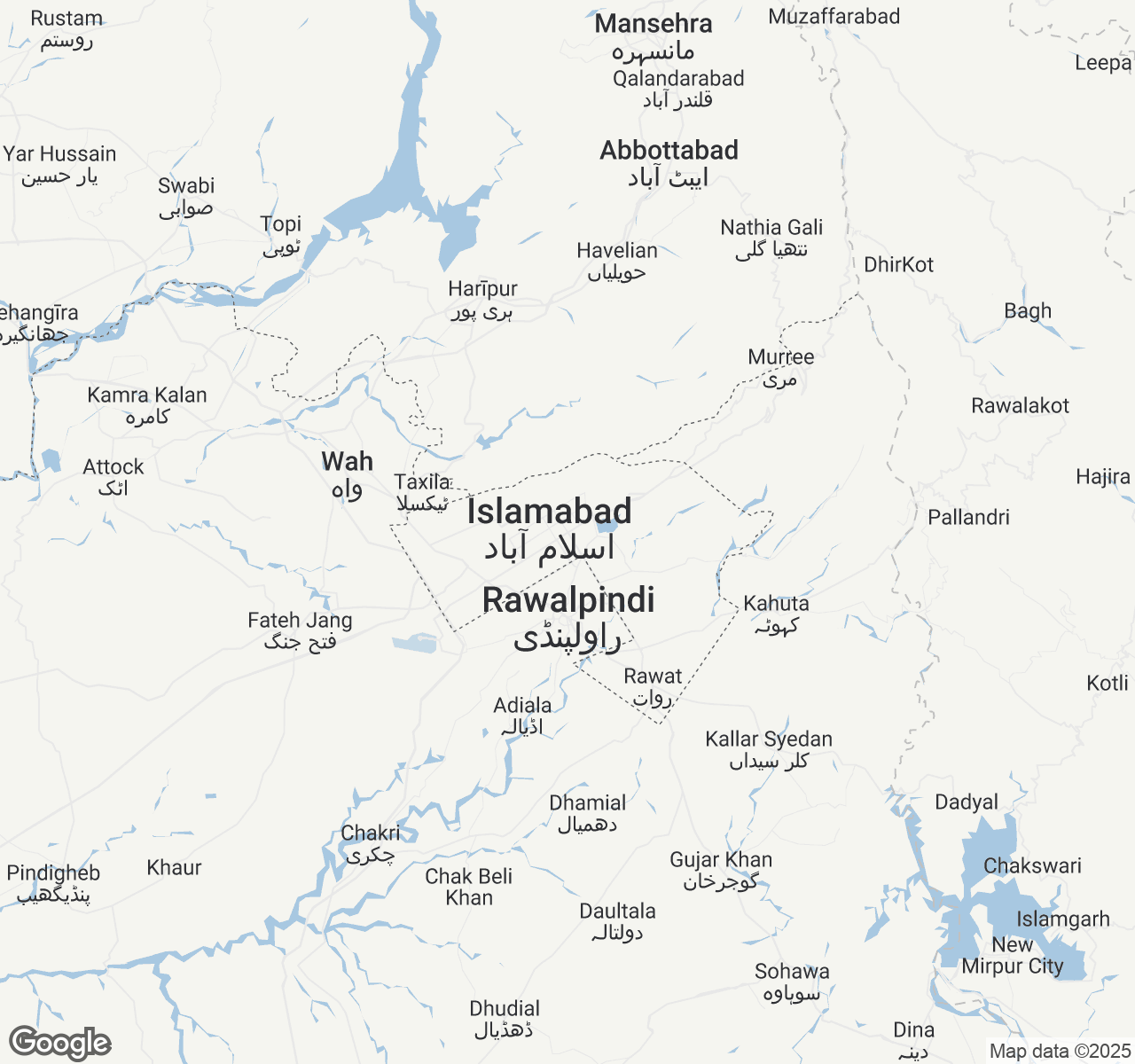
Things to Do in Islamabad
Discover the best of Islamabad
Plan Your Trip
Essential guides for timing and budgeting
Top Things to Do in Islamabad
Discover the best activities and experiences. Book now with our trusted partners and enjoy hassle-free adventures.
Your Guide to Islamabad
About Islamabad
Islamabad sits at the foot of the Margalla Hills, Pakistan's planned capital where wide boulevards meet serious mountains. The city won't overwhelm you—it is designed for space, with tree-lined avenues and air you can breathe. Morning mist hangs over eucalyptus groves while the call to prayer drifts from mosques across the grid. Jasmine and barbecue smoke mix on the streets. Vendors work the roadside stands, conversations switch between a dozen languages, and families spread out under banyan trees that predate the capital itself. The Shah Faisal Mosque catches light at certain hours—the tilework is impressive. Rose and Jasmine Garden fills with picnickers in the evening, and hiking trails start where the city ends, just minutes from downtown. This isn't Karachi or Lahore. Islamabad moves slower, planned that way from the start, where you'll find modern infrastructure next to older ways of living that didn't need updating.
Travel Tips
Transportation: Use Careem or InDrive ride-hailing apps—airport to city center costs 800-1,500 Pakistani rupees ($2.86-$5.36). Local buses cost 20-40 rupees ($0.07-$0.14) but routes are confusing. Rent cars with driver for 5,000-8,000 rupees ($17.86-$28.57) daily.
Money: Exchange US dollars at banks like HBL or UBL for rates around 280 rupees per dollar. ATMs accept international cards but charge 200-400 rupees ($0.71-$1.43) fees. Budget 3,000-6,000 rupees ($10.71-$21.43) daily for meals and activities.
Cultural Respect: Greet with 'as-salamu alaykum' and use your right hand for eating. Dress modestly covering shoulders and knees. Remove shoes when entering mosques like Faisal Mosque. Friday prayers affect business hours.
Food: Try biryani and karahi at local restaurants for 200-500 rupees ($0.71-$1.79) per plate. Sample chapli kebabs from street vendors for 50-100 rupees ($0.18-$0.36) each. Pakistani tea (chai) costs 20-50 rupees ($0.07-$0.18) per cup.
When to Visit
Islamabad enjoys distinct seasons that dramatically shape the travel experience. Spring (March-May) offers perfect weather with temperatures ranging 15-28°C, blooming jacaranda trees painting streets purple, and clear mountain views – expect 20-30% higher accommodation rates during peak spring months. Summer (June-August) brings intense heat (25-40°C) and monsoon rains (averaging 200-300mm), but lush green landscapes and 40% lower prices reward heat-tolerant travelers. The post-monsoon period (September-October) delivers crisp air, temperatures of 18-30°C, and excellent hiking conditions in the Margalla Hills. Winter (November-February) sees cool, dry weather (5-20°C) with occasional frost – perfect for outdoor activities but pack warm layers for early mornings. Major festivals include Pakistan Day (March 23rd), Eid celebrations (dates vary with lunar calendar), and Independence Day (August 14th) when the city buzzes with patriotic fervor. October through April represents peak season for international visitors, while budget travelers find excellent value during the hot summer months. Hiking ensoiasts should target October-March for Margalla Hills adventures, while photography lovers will find spring's blooms and autumn's golden light irresistible.

Islamabad location map